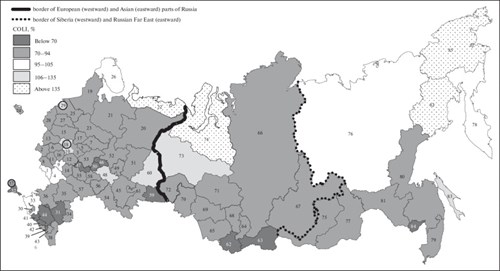“Over 74.5 million Russians aged 20 years and above, or approximately two thirds of the total adult population of the country, had wealth under $10,000 in 2021. To compare, on average around the globe, the share of residents belonging to this wealth range was measured at 53% in the same year.”
Statista website
Underlying the chaotic turn of events in Russia last Saturday is a clear illustration of the real danger that arises from concentration of wealth and power. Over the past thirty years the oligarchs and their families have developed a real stranglehold over political and business activity, and the mass of the population had been consigned to poverty.
When you look back at the ideological motives of Marx and Lenin, what we now see is how the consequences of heavily-intermediated socialist theory has achieved precisely the opposite. It's ironic that Putin should make reference to that 1917 revolution against the Tsar in his comments about the intended Wagner march on Moscow last Saturday, as if he now identifies more closely with that aristocracy than with the egalitarian motives of its successor regime.
However you interpret the situation, there's no doubt that Russia is a very dangerous challenge for global stability. Meanwhile the sanctions that have had to be imposed in reaction to Putin's invasion of Ukraine are themselves significantly increasing inequality; and, when the world leaves fossil fuels as stranded assets, the main source of finance in Russia will be lost.
What on earth should we do?
In the short term we must, of course, seek a resolution for the war on Ukraine. The Sunday Times quoted Prigozhin as stating that the justification Putin had given for the invasion was based on falsehoods, and relied on the Russian Ministry of Defence’s claim that, together with the whole NATO bloc, Ukraine was planning to attack Russia.
We must now hope that this shock to the Russian leadership will lead to a change in strategy. It's not easy to envisage a peaceful Russian withdrawal from eastern Ukraine and even more difficult from Crimea but, if these areas can be de-militarised, perhaps this is the time for United Nations peace-keeping forces to be deployed in order to enable an end of the war. Further into the future, this could allow for voting to determine whether the populations of those areas wish to be part of Ukraine or Russia.
The next step should be for Russia to start voluntarily planning a strategy for reducing the immense concentration of central power through use of fear and poverty, which currently secures the regime. Disintermediation is not an easy thing to achieve even in our western societies, but it can be encouraged by a gradual return to democracy, based on empowering citizens at all levels in society.
In the BBC Radio 4 Service broadcast to mark the Windrush anniversary, this phrase was quoted: ‘Too often the power of love is blinded by our love for power’. It would greatly help if the Russian Orthodox Church would re-focus on Jesus’s teaching to love our neighbours as ourselves, and assist in planning a strategy for a society based on love for others rather than dictat.
Finally, the Russian people must be enabled to move towards that more egalitarian approach to wealth that is so sadly lacking in today's climate. There is not a huge body of analysis on wealth distribution throughout Russia, let alone how it differs across the regions of this huge country.
The American National Library of Medicine has one of the best generally-available analyses of the cost of living and real incomes across the Russian regions, and it is interesting to see how, apart from Moscow and St. Petersburg, it is only the northern and far eastern regions which show significant benefit over the depressing average levels across the country as a whole.
It's likely that these are mainly beneficiaries from energy supply, which will suffer considerably in the medium term as the world moves towards net zero; and, in case anyone thinks that China will provide an indefinite market for their oil and gas, we should note recent temperatures of 41º C in Beijing. These will further concentrate the mind towards the necessity to address climate change.
Egalitarian capitalism must also play its part in contributing to a transformation of Russian society, and our two key propositions for inter-generational rebalancing and ‘Stock for Data’ should be a central part of this long-term change.
 Even oligarchs die at some point, and inheritance levies should be the source of funding which fuels inter-generational rebalancing. However, unlike the OECD with its comprehensive survey on inheritance taxation, there is currently no inheritance tax in Russia. That will have to change in order to provide young people with the starter capital accounts and life skills training that they need.
Even oligarchs die at some point, and inheritance levies should be the source of funding which fuels inter-generational rebalancing. However, unlike the OECD with its comprehensive survey on inheritance taxation, there is currently no inheritance tax in Russia. That will have to change in order to provide young people with the starter capital accounts and life skills training that they need.
Meanwhile, as the Russian people are allowed more unrestricted use of technology, our global plans for ‘Stock for Data’ will enable them to share in the wealth creation to which they will contribute.
In summary — Russia is in crisis today, but it doesn't have to remain that way forever. However, it can't achieve that transition in isolation: at some point we must start re-establishing contact in a non-threatening way, which could perhaps involve voluntary organisations and more communications between the Churches.
We must start encouraging the power of love to take over from the love of power.
Gavin Oldham OBE
Share Radio


